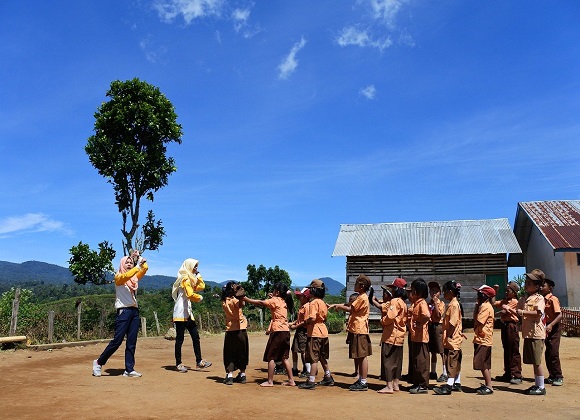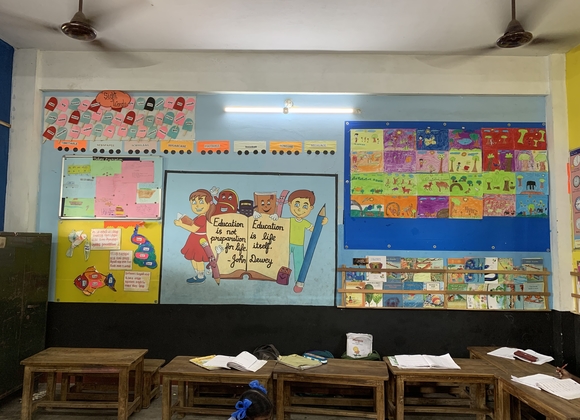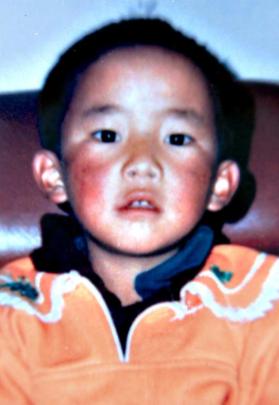Courses
Grow skills with quality courses
Pick of the week: Check out our round-up of this week's top picks from the most liked posts!

Class Room Learning with Real Life Situation
Shri Akhilesh Kumar Dobhal | 13 Dec 2020

Pictorial Story-writing

Nithiya M | 12 Dec 2020

The Lost Panchen Lama
Story of the lost boy
In the 17th century, it was declared that the current Panchen Lama, would be reincarnated in a child. Following the death of the 10th Panchen Lama, a search was undertaken to discover his reincarnation.
A quarter-century prior, a six-year-old kid was perceived as the resurrection of the Panchen Lama, the second-most elevated positioning figure in Tibetan Buddhism. He expeditiously vanished. Gedhun Choekyi Nyima is perceived by the Dalai Lama as the rebirth of the Panchen Lama, one of the most noteworthy positioning profound pioneers in Tibet, yet this decision was dismissed by the Chinese government, which arrested the kid. The Chinese government named Gyancain Norbu the eleventh Panchen Lama in late 1995.
A half-year after Gedhun's snatching, China reported that it had chosen a Tibetan kid called Gyaltsen Norbu to turn into the Panchen Lama. Since his determination, Gyaltsen, who lives in Beijing, has just infrequently visited Tibet. His visits are cautiously stage-oversaw and intensely policed Tibetans actually allude to him as the 'Panchen Zuma', or 'bogus Panchen'.
In May 1996, China conceded that Gedhun and his family were being held at a mystery area and China's envoy to the UN asserted that, "(Gedhun) has been put under the security of the public authority in line with his parents." He didn't state where Gedhun was being held.
In February 1998, American priests visiting Tibet were informed that Gedhun was in Beijing, yet in March 1998, the bad habit legislative head of Tibetan Autonomous Region Yang Chuantang revealed to Austrian delegates that he was really living in Lhari - the spot of his introduction to the world. In April 1998, a third area was advanced when a British columnist was informed that Gedhun was examining, perhaps in Gansu Province.
The Chinese government still refuses to reveal Gedhun's whereabouts or respond to requests from the United Nations and Western governments to check on his wellbeing.
Read more about the story
Gurushala | 09 Dec 2020

Importance of Extracurricular
The term extracurricular is a variation of the extra prefix, which means "on the outside and curriculum, which means "a running course/career."
Activities that come beyond the framework of your daily education are extracurricular activities.
Completing extracurricular activities ensures that you go beyond and above the criteria for education.
Benefits of Extra-Curricular Activities
1. Enhanced Student Success
Some students fear that it will take too much time out of their schoolwork to engage in extracurriculars, harming their grades; however, extracurricular experiences will potentially boost your grades and your school attitude in general! You will improve your brain function, help you relax and control your time efficiently by engaging in things you are excited about, all of which lead to higher grades. High endurance sports, for example, in the face of extreme challenges, can train you to concentrate and develop stamina. When it comes to learning and taking tests, this gives you an edge.
2. Explore preferences and build wider perspectives
You will have the chance to discover a variety of interests and activate desires you never thought you had when you engage in several different events!
Plus, subsequently, diversifying your desires broadens your understanding of the universe.
Think about it this way: you'll start to look at the world from the eyes of a young intellectual when you join a philosophy club.
3. Self-esteem will be higher
The more you gain success by things that you are excited about the more you can increase your self-confidence.
Let's assume, for starters, you're very good at mathematics and your teacher encourages you to compete in competitions. You join the school team and begin the national Mathematics Olympiad preparation. You learn how enjoyable math can be and how brilliant you truly are throughout the process, which gives a huge boost to your confidence.
4. Mutual Chances
Let's be honest, it can be difficult to make friends, but extracurricular sports are one of the best ways to make friends!
Each extracurricular in which you participate gives you another chance to extend your social network, which while you are searching for a career will also come in handy.
Plus, you'll be more likely to be more personally involved if you make friends with your extracurricular activities.
5. Effective Pauses
Extracurricular events give you, away from school, something fun to do. It also gives you the ability to discover your interests to find stuff that you might be involved in outside scholars while taking some time off hitting the book
Take the break you need and you deserve it!
6. Important Skills in Life
One of the biggest benefits of extracurricular activities provides you with "real world" skills in addition to all the advantages of extracurricular activities we have already addressed. In your extracurricular endeavors, the more you drive yourself, the more you grow these talents. You could enter the school coding club, where you can learn teamwork, problem-solving and critical thinking skills if you are passionate about coding.
But you could take your enthusiasm even further to build your own coding club, where you can cultivate the ability to set goals, control time, prioritize, manage, and talk publicly.
Phew!-Phew! That is a lot of transparency. Each and every move will give you a new ability for the rest of your life that you will use.
7. Shiny Resumes
One of the only ways recruiting managers can determine your skill and work ethic is by your extracurricular experiences without any prior work experience.
For starters, if you were on a debate team, the boss will know that you work well with others can make a case professionally, and have knowledge in public speaking - all fantastic qualities to have in the workplace!
Although you're already still interested in out-of-school sports, take the opportunity to learn about the advantages of extracurricular activities and how to enhance your interests.
From finding a career, applying to colleges abroad, to simply living your life, the lessons you will learn from engaging in successful extracurricular activities will benefit you with everything.
So go join a club, start a class or volunteer online. What's waiting for you?.
Kajal Khanna | 05 Dec 2020

